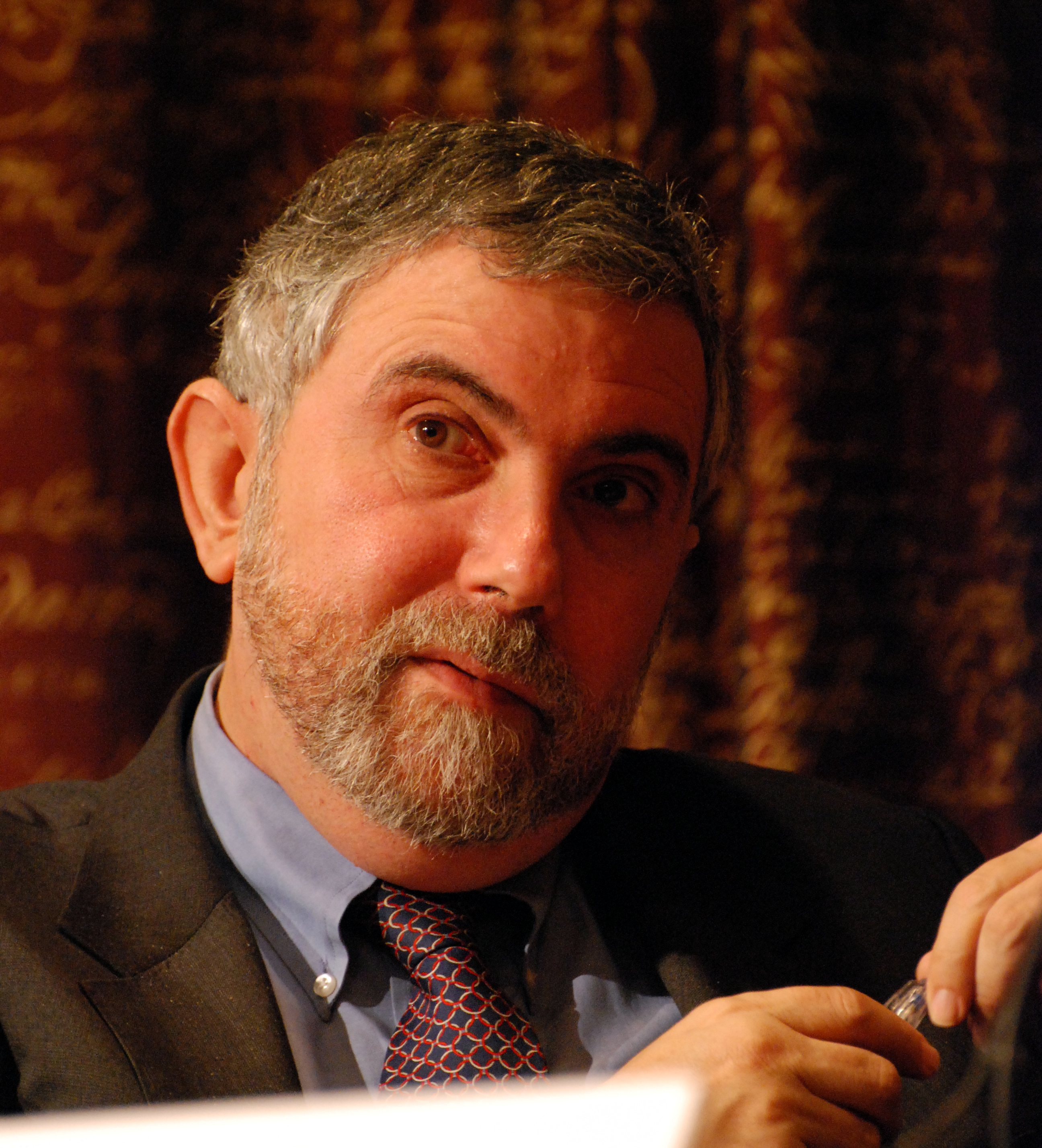Paul Krugman: Citations en anglais
Source: The Conscience of a Liberal (2007), Ch. 13. The Conscience of a Liberal http://books.wwnorton.com/books/detail.aspx?ID=5887. W. W. Norton & Company. 352 pages ISBN 978-0-393-06069-0, 1st edition (2007)
“… politics determine who has the power, not who has the truth.”
The Australian Financial Review, 6 September 2010, p. 15, "Time for Obama to abandon caution". Also seen in the Sacramento Bee http://www.sacbee.com/2010/09/04/3004829/obama-should-aim-high-on-stimulus.html
"Dubya's Double Dip?" http://www.nytimes.com/2002/08/02/opinion/dubya-s-double-dip.html, The New York Times, 2 August 2002
:It should be noted that Krugman was being sarcastic http://www.cepr.net/index.php/blogs/beat-the-press/when-someone-says-paul-krugman-called-for-greenspan-to-create-a-housing-bubble-back-in-2002-they-are-trying-to-say-that-they-are-either-a-fool-or-a-liar; two weeks later, he wrote an article http://www.nytimes.com/2002/08/16/opinion/mind-the-gap.html warning about the dangers of a housing bubble.
The New York Times Columns
How I Work (1993)
Pop Internationalism (1996), Asia's Miracle (1994)
Development, Geography, and Economic Theory (1995), Ch. 2. Geography Lost and Found
" Mr Keynes and the moderns http://www.voxeu.org/article/mr-keynes-and-moderns/" (June 21, 2011)
“Depressions are Different”, in Robert M. Solow, ed. Economics for the Curious: Inside the Minds of 12 Nobel Laureates. 2014.
Development, Geography, and Economic Theory (1995), Ch. 3. Models and Metaphors
The New York Times Columns, The Populism Perplex (November 25, 2016)
"O Canada", Slate (October 19, 1999)
Paul R. Krugman, Maurice Obstfeld, and Marc J. Melitz, International Economics: Theory & Policy, 9th edition (2012)
Keynesianism Explained http://krugman.blogs.nytimes.com/2015/09/15/keynesianism-explained (September 15, 2015)
The Conscience of a Liberal blog
"Is Free Trade Passé?", The Journal of Economic Perspectives, Vol. 1, No. 2 (Autumn, 1987)
"What should trade negotiators negotiate about?" Journal of Economic Literature, Vol. 35, No. 1 (Mar., 1997)
The New York Times Columns, The Populism Perplex (November 25, 2016)
Questions of Character http://krugman.blogs.nytimes.com/2016/05/17/democratic-groundhog-day/ (May 17, 2016)
The Conscience of a Liberal blog
on CNN's "Fareed Zakaria GPS", August 21, 2011. http://www.huffingtonpost.com/2011/08/15/paul-krugman-fake-alien-invasion_n_926995.html
Development, Geography, and Economic Theory (1995), Ch. 1. The Fall and Rise of Development Economics
Source: Peddling Prosperity (1994), Ch. 1 : The Attack on Keynes
Development, Geography, and Economic Theory (1995), Ch. 3. Models and Metaphors
"Who Was Milton Friedman?", The New York Review of Books (February 15, 2007)
The New York Review of Books articles
Regarding the last-minute deal that ended the 2013 U.S. government shutdown just before the U.S. defaulted on its debt
[Paul Krugman, http://www.nytimes.com/2013/10/18/opinion/krugman-the-damage-done.html?ref=opinion&_r=1&, The Damage Done, New York Times, October 18, 2013, October 18, 2013]
The New York Times Columns
"Virus Strikes Again", Originally "Supply-Side Virus Strikes Again: Why there is no cure for this virulent infection" http://web.mit.edu/krugman/www/virus.html, undated draft at web.mit.edu of a "The Dismal Science" column for Slate
The Accidental Theorist: And Other Dispatches From The Dismal Science (1998)
Response to Nelson and Schwartz, Journal of Monetary Economics 55 (2008)
“If the question is when markets will recover, a first-pass answer is never.”
Prediction in the aftermath of Donald Trump's presidential election victory. Markets recovered the following day.
The Economic Fallout https://www.nytimes.com/interactive/projects/cp/opinion/election-night-2016/paul-krugman-the-economic-fallout (November 9, 2016)
The New York Times Columns
Pop Internationalism (1996), Competitiveness: A Dangerous Obsession (1994)
[Paul Krugman, http://www.nytimes.com/2015/07/17/opinion/paul-krugman-liberals-and-wages.html, Liberals and Wages, New York Times, 17 July 2015, 17 July 2015]
The New York Times Columns
